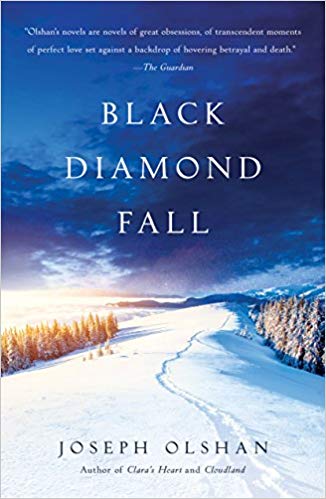How do they do it? The Literary Masters of Suspense
As a mid-career novelist, I am attempting to forge fiction that is a hybrid of the literary and mystery and suspense genres. And I have my role models, novelists whose work while suspenseful, also showcase in-depth characterization as well as consistently elegant and thought-provoking sentences that rival anything published in the “literary genre.”
One preeminent writer of this sort of fiction is the late Iris Murdoch, a Booker Prize-winning novelist as well as a professor of philosophy at Oxford, whose deeply thoughtful novels are often characterized by gruesome acts of violence and torture (both physical and psychological) and delicately wound in a golden thread of suspense. Two of her books, each of which involves small-town life, were particularly inspirational. First and foremost is The Word Child whose protagonist, Hilary Burde, an abused orphan, finds that his gift for language (how it works and fits together in poetry as well as prose), wins him a place at Oxford. Burde graduates with high honors, lands a teaching job at his alma mater, and at the height of his career, enters a love affair with a married woman, which is found out and causes him to lose his hallowed place in academia and bottom out. Hilary ends up in a boring, unchallenging office job and one day learns that his new boss is the husband of the woman with whom he has had the affair. The way Murdoch maneuvers her characters and situations with deep insight into love and relationships is intense and suspenseful, and from research into her personal life, I conclude that she has drawn the portraits of her characters from the obsessive, arguably destructive love affairs that punctuated her life—until she became afflicted with dementia.
Adding to this suspenseful novel is another Murdoch in the same vein, A Fairly Honourable Defeat, which begins as an experiment by a sinister character named Julius who aims, through a series of false claims and lies, to undermine the loyalties of couples (both gay and straight) and wreaks havoc on the lives of people who presume him to be a friend. The book is perfectly balanced between plot and characterization and is founded on a provocative idea: that evil is communicated throughout the world by people who suffer from it and who are willing to pass their suffering and this evil onto the next person. And the only way evil is stopped is when the suffering person makes a conscious attempt not to pass it on.
From Murdoch I move on to an American novelist, William Kent Krueger, the author of the Cork O’Connor series of mysteries whose stand-alone novel, Ordinary Grace, paints an indelible portrait of a small Minnesota town in the early 1960s and whose first-person protagonist, the son of a preacher, recounts a summer of five deaths, some of them accidental, some of them murders, and one of them, tragically, of his older sister. This potent coming-of-age novel rivals similar novels such as To Kill a Mockingbird and A Separate Peace, and takes its title from how the narrator’s father handles all sorts of difficult situations with ordinary grace. This book won the Edgar Award for best novel for a work of fiction published in 2012 and in many ways is remarkably similar to Louise Erdrich’s The Round House, another first-person coming-of-age novel set in the same part of the world portrayed by the winner of the National Book Award in the same year. Having read and admired both of these novels, I would be hard-pressed to choose which one is better, and I have no doubt that Erdrich and Krueger probably read one another’s novels and admired them as much as I did.
Back to Europe, Germany specifically, and a novel called The Reader by Bernhard Schlink in which a former Nazi prison guard named Hannah has an erotic, sadomasochistic affair with a minor whom she abruptly and mysteriously abandons. Years later, when the young man is a law student, he attends a judicial proceeding where he is shocked to find Hannah on trial with several other middle-aged women for allowing a group of three hundred Jewish female prisoners to die in a fire that occurred when they were locked inside a church that was bombed. The young man feels guilty for having loved a woman he now realizes is a remorseless criminal—especially when she admits to having written an account of the fire and her role in it. But then he finds out that Hannah was only peripherally involved in the crime and has admitted her guilt so as not to have to give the prosecutors a sample of her handwriting. As it turns out, she is profoundly ashamed of being illiterate and the narrator remembers how she made him read to her before making love, just as she had some of the Jewish women read to her before sending them to their deaths. This is a harrowing, page-turning account that sheds a fine, focused light on the ordinary German citizen’s role in the Holocaust. It is a suspenseful novel from the first word to the last.
Joseph Olshan is the award-winning author of ten novels including Cloudland, Nightswimmer, and The Conversion. He is the publisher of Delphinium Books and spends most of the year in Vermont. His latest novel, Black Diamond Fall, is available now from Polis Books.


